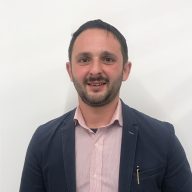Diploma in Health Science
Course Description
The Diploma in Health Sciences aims to to prepare individuals for more advanced health-related careers and higher qualification which allows them to progress to bachelors and later masters level.
Students of this programme are going to focus on advancing their knowledge, skills and competences that will help them to deal with people with health issues as well as with challenges presented in working with multidisciplinary teams in healthcare settings. The content covers developmental, physical, psychological, spiritual and mental aspects of human health as well as tools to deal with illness and challenging behaviour.
This programme focuses on the Maltese legislations related to the sector and promotes the ‘Code of Ethics and Standards of Professional Conduct for Nurses and Midwives, Council for Nurses and Midwives, Malta, January 2020’.
Entry Requirements
Candidates who apply for this course must be:
- Be second level nurses in possession of a minimum Level 4 Certificate in Nursing (or comparable as per MQRIC).
OR
- Possess a qualification at MQF Level 4 (one ‘A’ Level or equivalent preferably in science) or if ‘A’ level is not in science subject then a a pass in Biology, Chemistry or Physics at MQF Level 3 (‘O’ Level or equivalent) is required.
Preference will be given to prospective applicants who have a minimum of 1-year work experience in healthcare sector.
Target Audience
- 2nd level nurses who hold an MQF Level 4 certificate in Nursing.
- Candidates who are employed within the healthcare sector and possess an MQF Level 4 Diploma qualification (or equivalent) in healthcare/health science or other relevant and related sectors, examples include but are not limited to: Carers, Medical Assistants, Home Health Aides, Orderlies, Administrators, etc.
- Candidates seeking a career in the Health Care sector.
- This Level 5 Diploma provides an opportunity to candidates to progress in their studies and create a study route for further studies in Higher and Further Education while broadening the spectrum of advancement in own career path.
Modules
You are required to complete all 9 compulsory modules (60 ECTS) to fulfil the requirements of the Diploma in Health Sciences
If you stop here, you will get:
Private: Certificate in Health Science
Don’t stop now! Go for that Diploma / Higher Diploma Programme 🚀
🏁 Amazing! You’ve just achieved your Diploma.
Diploma in Health Science
Why stop here? Carry on your education with a Higher Diploma in Health Science🚀
How you’ll be assessed
The course comprises:
- Evening classes for part-time courses.
- Classes held throughout the day for full-time courses.
- Guided learning, presentations, comprising synchronous online discussions, tutorials and/or videos.
- Self-study hours comprising research, reading and assignment work.
Assessment
Assessment is carried out via mandatory components:
- Modular Assessment
- Summative Assessment
The programme includes different forms of assessment which allow for and promote students’ critical engagement. The formative and summative assessment tasks may include an in-class assignment and/or a home-based written assignment using diverse assessment tools which may take the form of online and in-class discussions, examinations, case studies, reports, proposals, essays, and presentations, etc., as applicable to the diverse modules
Course Intake Dates
July 2026
Learning Outcomes
Learning Outcomes for Communication Skills:
The learner will be able to:
- Convey ideas, in a well-structured and coherent way to peers, supervisors and clients using qualitative and quantitative information.
- Formulate practical and theoretical responses to abstract and concrete problems and makes judgements on social and ethical issues.
Learning Outcomes to Learn Skills:
- Evaluate own learning and identify learning needs necessary to undertake further learning.
- Engage with fellow students in peer learning process to share own learning and development and assess and comment on progress of others in context of material being taught.
- Enhance their career by developing advanced knowledge and understanding to systematically and creatively upgrade their health care related practices.
